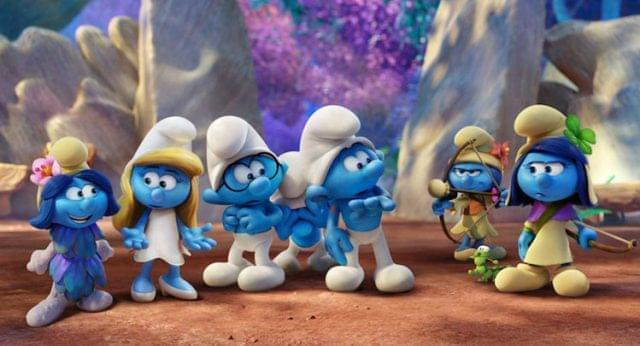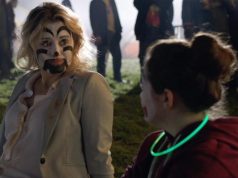
The lesson learned at the end of “Smurfs: The Lost Village” is that Smurfette can be anything she wants to be — a great message for girls! — while the boy Smurfs will continue to be defined strictly by their one dominant personality trait, which they can never change. That’s … not ideal. You know how some people (misogynists) think the true goal of feminism is for women to control men and have every advantage over them? They’ll love the ammunition this gives them. I can already picture the outraged thinkpieces at Breitbart and National Review.
Apart from the poorly thought-out gender messaging, the movie is still a flaming mediocrity that merits no consideration. There were two Smurf movies earlier this decade that had CGI Smurfs in a live-action world, but “The Lost Village” is a whole new reboot, entirely animated, with none of the same cast or creative personnel. (The director, Kelly Asbury, made “Shrek 2” and “Gnomeo & Juliet”; the writers, Stacey Harman and Pamela Ribon, have worked in TV.) It’s pitched very young, too, with no interest in appealing to adults or even smart children. In a previous era, it would have debuted on VHS and played in a loop in pediatricians’ waiting rooms.
We begin with Papa Smurf (Mandy Patinkin) acting as Narrator Smurf to remind us of Smurf nomenclature. All Smurfs are named according to their personality or profession, and only ever act in a manner befitting their names. Vanity Smurf, for example, can’t NOT be vain, even if he wanted to, which he presumably does not.
The exception is Smurfette (Demi Lovato), the lone female Smurf, who technically isn’t a Smurf at all but a golem made by Gargamel (Rainn Wilson), an evil wizard who lives in a castle and argues with his cat. (Yes, a golem: she was a lump of clay into which Gargamel breathed life.) Smurfette’s only distinction is that she’s a girl, and she’s begun to feel let down by this. Why must she be defined only by her gender? Doesn’t she deserve to be reduced to a single exaggerated character trait like everyone else?
It is in the midst of this existential crisis that Smurfette, Hefty (Joe Manganiello), Brainy (Danny Pudi), and Clumsy (Jack McBrayer) set out on an expedition to find a lost village of Smurfs that they have just learned exists, like, half a mile from their forest. Wouldn’t you know it, after a perilous journey and numerous near-misses with Gargamel, the four Smurfs find the lost village and discover it is populated entirely by female lady girl Smurfettes!! Instead of being named according to their personalities, they are named the way many human girls are, i.e., by randomly choosing a girly-sounding word. Their leader is Smurfwillow (Julia Roberts); they also have a Smurflily (Ariel Winter), Surfmelody (Meghan Trainor), Smurfblossom (Ellie Kemper), and Smurfstorm (Michelle Rodriguez). Except for Smurfstorm, who’s tough and suspicious, and Smurfblossom, who’s enthusiastic and welcoming, their personalities are indistinct.
The girl Smurfs are suspicious of these three boy Smurfs (and Papa Smurf, who shows up later; all the other familiar Smurfs are back in the village, absent for 90% of the film). Some wonder if Smurfette can be trusted, either, since she was created by Gargamel, and Smurfette herself fears she may be destined to support him. You may be assured that it all ends happily, with everyone learning that it doesn’t matter where you came from or what gender you are, you can be anything you want to be (unless your name stipulates something specific, in which case you have to be that). Young kids will like the movie well enough, but they’ll like it just well when it’s free on HBO in a year. Twelve bucks for this weak pablum? Smurf that.
Oh, that reminds me. The verbal tic that plagued Saturday-morning Smurfs in the ’80s, where they would replace some words with “smurf” and the other Smurfs just knew what they meant, is largely under control now. They only do it four or five times in the new movie. Whether this progress is due to medication or psychological reprogramming is not explained.
C- (1 hr., 31 min.; )





